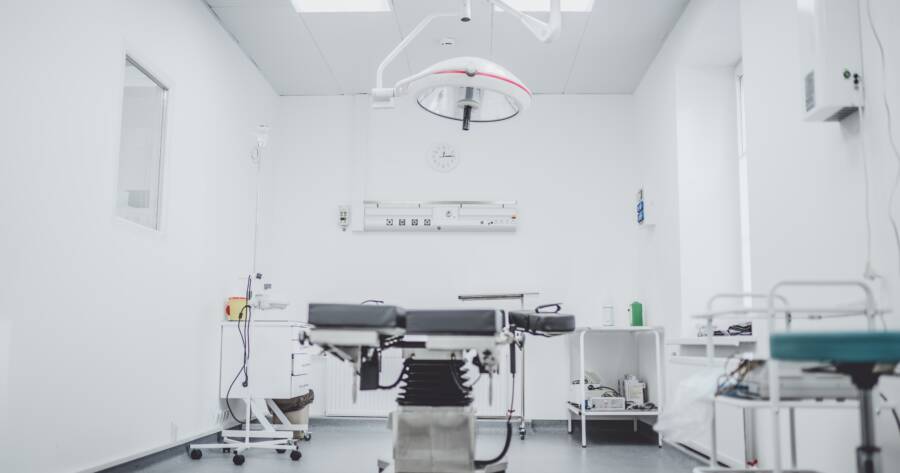Learn exactly what medical malpractice is, what the most common types of medical malpractice are and who is liable for malpractice lawsuits in this article.
Doctors are humans and therefore capable of making mistakes. Unfortunately, the nature of their job means that errors at work can have severe consequences for patients. Medical malpractice isn’t often discussed, which may give some people the impression that it’s uncommon. In fact, the opposite is true. The majority of physicians have been accused of malpractice, and medical negligence is a leading cause of death. In the United States, approximately 500 people die due to medical errors every two days.
In this post, we cover the basics of medical malpractice every individual should know in order to protect themselves.
What Is Medical Malpractice?
Medical malpractice is a legal cause of action that occurs when a health care or medical professional digresses from standards in their profession and causes injury to a patient. If this happens, the patient or the patient’s family can sue the health care practitioner for damages.
To successfully file a medical malpractice lawsuit, the injured patient or their family must prove that the physician acted negligently in practice and that the negligence resulted in injury. To summarize, four legal elements must be proven:
- A professional duty that is owed to the patient
- A breach of that said professional duty
- An injury caused by the breach of duty
- Relevant resulting damaged
Usually, in medical malpractice lawsuits, both actual economic and noneconomic loss is considered when awarded money damages. For example, pain and suffering are often awarded monetary value for damages.
 Julia Zyablova/Unsplash
Julia Zyablova/UnsplashCommon Errors Leading to Medical Malpractice
As we’ve stated, medical errors are quite common. And, there’s a clear pattern of common mistakes that lead to medical malpractice cases. Some of the most common errors are:
1. Misdiagnosis or Delayed Diagnosis
Often, it can be difficult to diagnose exactly what is causing a patient’s condition. Many medical conditions have overlapping symptoms, making a correct diagnosis challenging. Unfortunately, a misdiagnosis can have severe consequences for some individuals. For example, suppose a patient was misdiagnosed when they had a Stage 1 cancer, resulting in their cancer developing to Stage 4. In this case, the misdiagnosis could drastically reduce their chance of a full recovery.
Patients (or their families) can file for a medical malpractice lawsuit after a misdiagnosis or a delayed diagnosis, citing unnecessary medical bills, prolonged pain and suffering, irreparable health damages or even death.
2. Medication Errors
Prescription drug errors include cases where a patient is given the wrong medication or an incorrect dosage or is not told of all potential side effects. Many patients don’t report or understand when a medication error has occurred. However, these mistakes can have drastic consequences on a person’s health. Various medical professionals can be held responsible for prescription mistakes, including doctors, pharmacists, nurses and drug manufacturers.
 Christina Victoria Craft/Unsplash
Christina Victoria Craft/Unsplash3. Anesthesia Errors
Anesthesia can be very dangerous if not administered correctly. If a patient is given too little, they can wake up during a surgery but be unable to communicate with the medical staff. This can result in the patient feeling unnecessary pain, as well as being very traumatizing.
On the other hand, giving a patient too much anesthesia can result in serious health damages or even death.
Anesthesia errors can be made when an anesthesiologist doesn’t consider a patient’s medical history or administers too much anesthesia. These mistakes don’t just happen in operating rooms. Anesthesia errors can occur in pre-op, recovery rooms, outpatient operations and even during sedation for dental procedures.
4. Surgery Errors
Surgery is a very complicated and delicate process. Unfortunately, that means there are many opportunities for things to go wrong. Some typical surgery errors include making an incision on the wrong body area, operating on the wrong surgery site or leaving surgical tools or materials (like a surgical sponge) inside the body. Most surgical errors are either due to a surgeon’s error or poor preoperative planning and communication.
The consequences of surgical errors can vary greatly. If a patient has the wrong incision made, they may just be left with additional scarring. However, errors such as operating on the wrong site or leaving surgical materials in the body can cause serious harm, infections, lifelong damage and even death.
5. Childbirth Errors
Childbirth is a beautiful process, but it can come with unique challenges. Doctors should typically have complete records for a mother and her pregnancy history to date so they can anticipate problems during the birth and address them accordingly. Unfortunately, the failure to be prepared for difficulties can result in severe consequences for the mom or her child. Medical negligence during childbirth can lead to complications such as spinal cord injuries, fetal distress and postpartum hemorrhage.
 Omar Lopez/Unsplash
Omar Lopez/UnsplashCan I Sue a Hospital for Medical Malpractice?
Whether you sue a hospital or the medical practitioner for malpractice will depend on a variety of factors. Typically speaking, hospitals take on the responsibility for incompetence from employees like nurses and medical technicians. However, when it comes to doctors, a hospital isn’t always responsible for their negligence.
A hospital takes on liability for the actions of its employees. So, this covers the efforts of most medical staff in the hospital. One exception is doctors. Most doctors aren’t the employees of the hospital; instead, they are independent contractors. Of course, this can vary for each doctor-hospital relationship. If a doctor is an independent contractor, they can be sued personally for medical malpractice rather than the hospital.
Another exception is if the hospital staff makes a malpractice error under the supervision of a doctor. While the hospital employee made the error, the hospital is off the hook for malpractice responsibility because they were under the supervision of an independent contractor doctor. For this to be the case:
- The hospital employee had to be acting with a doctor present.
- The doctor had to have sufficient ability to control the treatment scenario and prevent the employee’s negligence.
Ultimately, both doctors and hospitals carry malpractice insurance.
 Graham Ruttan/Unsplash
Graham Ruttan/UnsplashWhat to Do If You Suspect You Have a Medical Malpractice Suit
If you suspect you’re the victim of a medical malpractice situation, it’s essential to consult with a lawyer right away. Ideally, you should book an initial consultation with a medical attorney, as they specialize in medical malpractice suits. Your lawyer will be able to review the details and confirm if you have a viable case. They will also walk you through the next steps, such as gathering evidence and witnesses.






